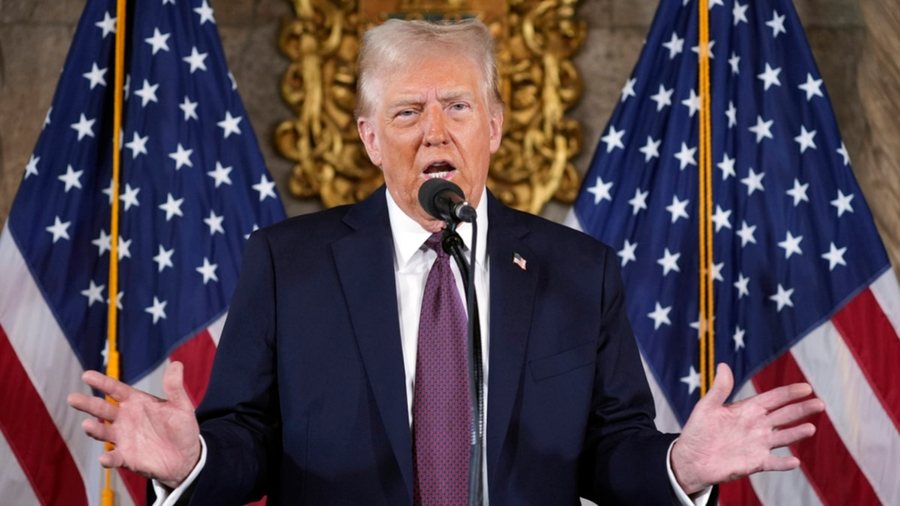
Various artificial intelligence companies are competing to create the technology of the future. As programs like ChatGPT have become popular, U.S. regulators have not kept pace with the technology's development. As Voice of America correspondent Tina Trinh reports, the incoming U.S. administration wants the United States to dominate the artificial intelligence industry despite the risks the technology may pose.
President-elect Donald Trump and Softbank CEO Masayoshi Son made an important announcement.
"I am excited to announce that Softbank will invest $100 billion in the United States, creating at least 100,000 jobs for Americans. This will help artificial intelligence, emerging technologies, and the industries of the future be created, built, and developed in the United States," said President-elect Donald Trump.
Innovations in the field of artificial intelligence are moving at a rapid pace, driven in part by the popularity of programs such as ChatGPT, which are trained using large amounts of text data to produce new content.
But the seemingly limitless capabilities of this technology raise questions about regulatory norms and safety.
Voice of America spoke with the professor of law and ethics at the Wharton School of Business at the University of Pennsylvania,
"President Trump's administration has been very clear that it wants to eliminate many of the regulations put in place by President Biden's administration on artificial intelligence. Saying that they will remove the shackles of this technology to win the battle against China in this area and lead the world."
During a meeting on artificial intelligence in New York, attendees expressed enthusiasm for the future of the technology, but also a desire for policies and standards that will help mitigate its potential harms.
"Companies want to understand how to avoid problems in cases where technology is biased and does not work as intended," says Professor Werbach.
Entrepreneur Jaye Watts points to calls for transparency from both creators and companies like Valve, known for developing and distributing video games.
"Companies are being forced to say how they are using artificial intelligence, differently than they used it before, taking resources somewhere and in some cases violating someone's rights."
Providing AI models with quality data to train them is ideal, but developers don't always have access to such data. Oshin Anand is with the firm "Sahaj."
"When you use a pre-trained variant of a high-throughput model, even if you make improvements, you have no control over the massive amount of data it was trained on. There may be improvements, but there is no concept of undoing that process."
Experts suggest including metrics and standards to assess the productivity of an artificial intelligence program, which they hope will boost business.
"This is how progress can be made and trust can be built," says Oshin Anand with the Sahaj firm.
Others fear that a tough regulatory approach could harm innovation and competition.
Jiajun Lu is the founder of the company Akool, which produces video and audio using artificial intelligence.
"If some countries are more aggressive about regulations and some are not, then companies will move to those countries. Artificial intelligence is an area where every country wants to win, so countries will harmonize their regulations."
As artificial intelligence makes advances, human intelligence must determine the right balance between innovation and order./ Voice of America (A2 Televizion)











